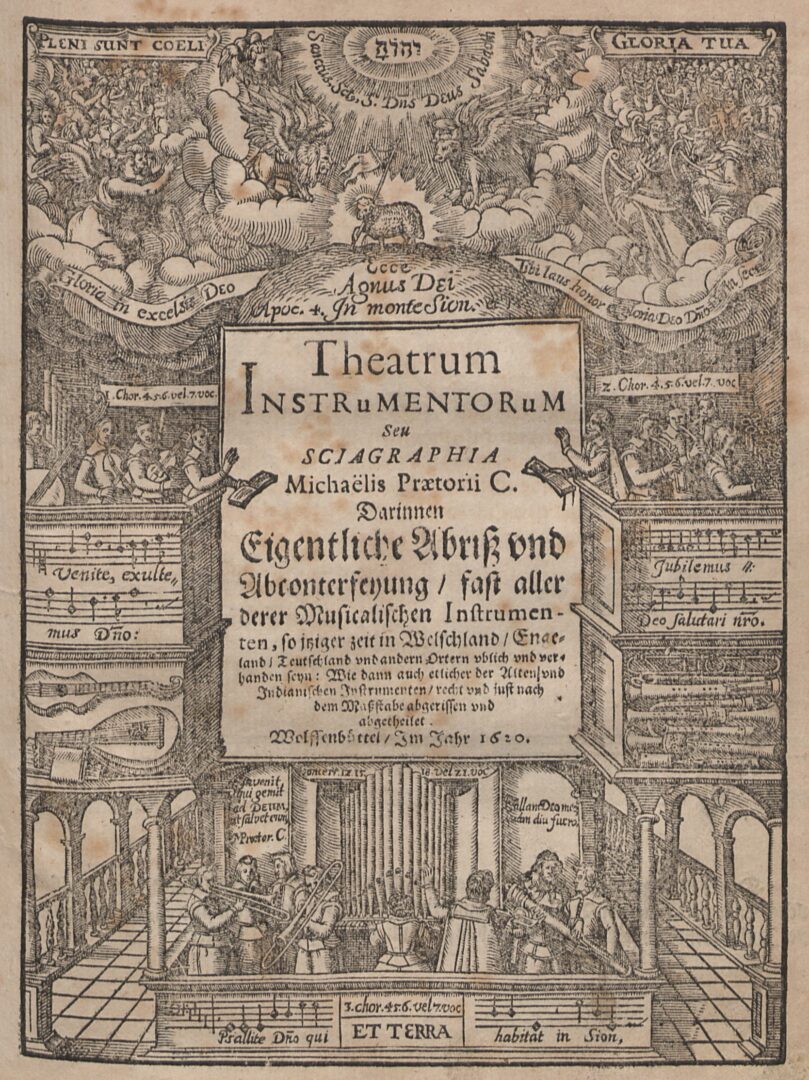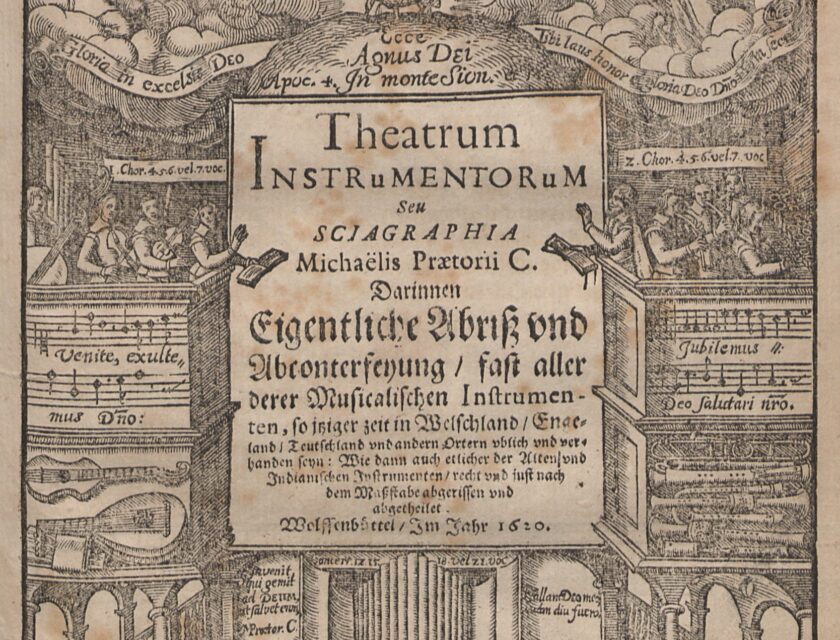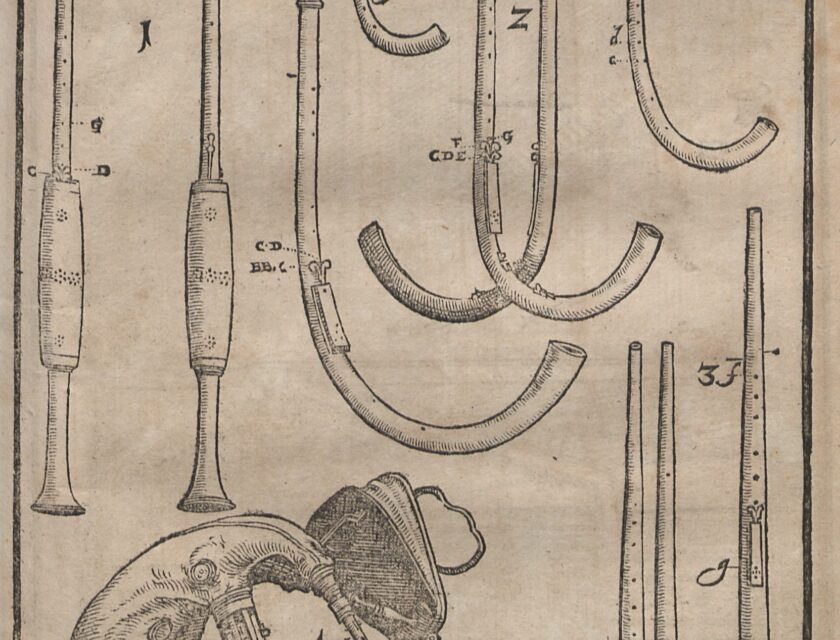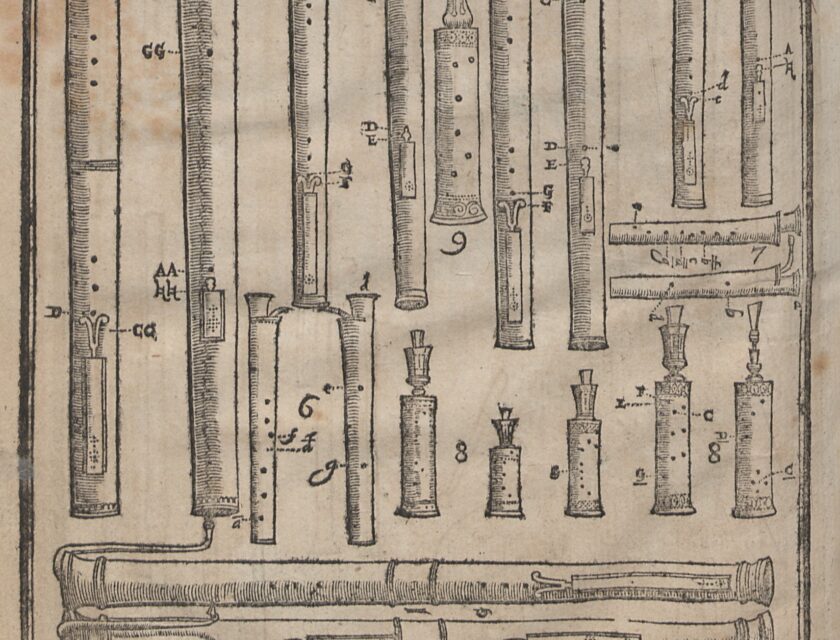he late renaissance saw an unimaginable flowering of different double reed instruments which are captured forever in Michael Praetorius’ Theatrum Instrumentorum.
For many centuries the schalmei and pommer ruled supreme with their quieter sister, the douçaine, lurking in the shadows.But at the beginning of the 16th century, a wave of creativity and spirit of experimentation swept through the instrument makers: they not only created larger versions of familiar instruments, but also ventured into bold new inventions, which they built in “families” of instruments of different lengths, in order to make polyphonic music playable on them. They also experimented with all sorts of twists of turns resulting in dulcians, rackets, and crumhorns, to name but a few … all of which you will hear buzzing away on 26th October.
Adrien Reboisson
Silke Gwendolyn Schulze
Melissa Sandel
Maruša Brezavšček
Ann Allen – Leitung
Shawm, Dulcian, Douçaine, Rackett and Crumhorn
Free entry – Donations

Syntagma Musicum, Band II (Theatrum Instrumentorum), Wolfenbüttel: Michael Praetorius, 1620, Titelblatt / Digitalisat: SLUB Dresden
“I’ll be there!”
by David Fallows
Back in 1969, when I was working for Thomas Binkley in Munich, he asked me to assemble all the available information about the douçaine mentioned by Machaut. Armed with my dossier, he went off for a weekend with the instrument-maker Günther Körber in Berlin and came back with four instruments that (roughly) matched the descriptions I had assembled. They functioned like crumhorns, but were straight and end-stopped, but – magically – they had none of the instability that so famously plagues crumhorns. So we immediately used them for a record (Musica iberica II). What we did not know (and I left Munich at the time to study in California, so I have the story only at second hand) was that Körber had made a second set, which his assistant took to an early-instrument course in Celle run by the Moeck firm. They were such a success that almost immediately Moeck produced their version, called “Cornamuse”. That’s how instruments are ‘reinvented’. If they happened to work well, they were adopted…
…Ann Allen’s group plans to play the dreaded crumhorns: it must be fifty years since I last heard one in a concert (probably with me playing). But I still have vivid and painful memories of preparing them so that they actually worked and played more or less in tune. In any case, Praetorius lists and illustrates such a wide variety of instruments that we can expect a wonderfully varied and lively concert.

Syntagma Musicum, Band II (Theatrum Instrumentorum), Wolfenbüttel: Michael Praetorius, 1620, Titelblatt / Digitalisat: SLUB Dresden

Krummhornen, aus: Syntagma Musicum, Band II (Theatrum Instrumentorum), Wolfenbüttel: Michael Praetorius, 1620, Tafel 13 / Digitalisat: SLUB Dresden

Dulzian, Ranketten & Sordunen, aus: Syntagma Musicum, Band II (Theatrum Instrumentorum), Wolfenbüttel: Michael Praetorius, 1620, Tafel 10 / Digitalisat: SLUB Dresden
Barfüsserkirche
Historisches Museum Basel
Barfüsserkirche
Basel Historical Museum
Gold-printed paper calendar